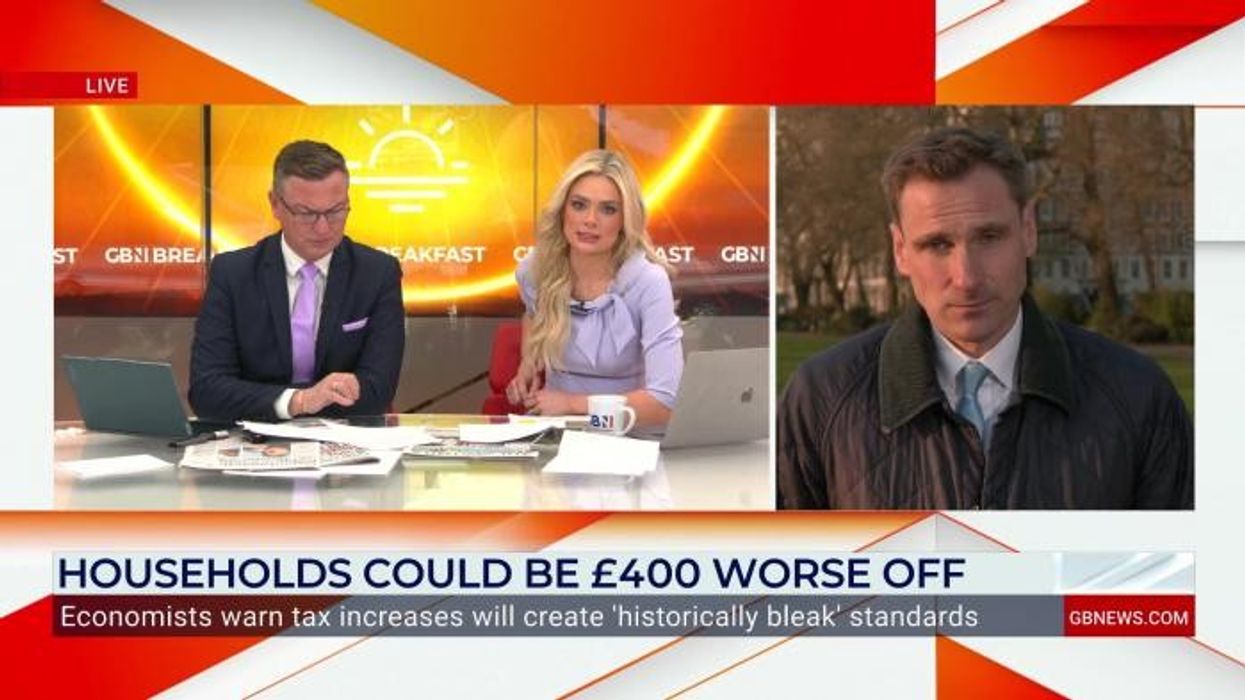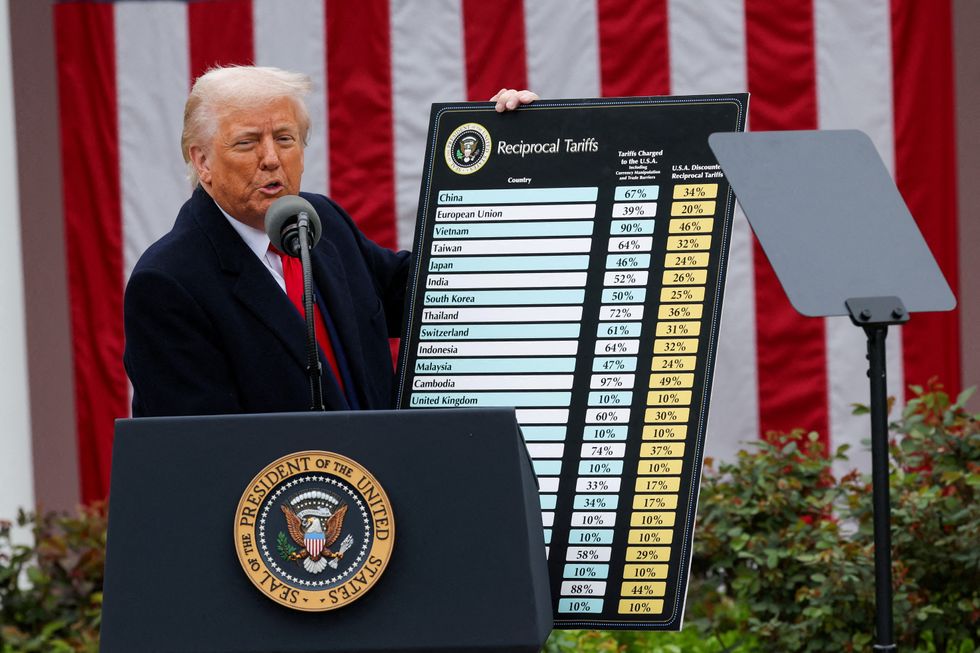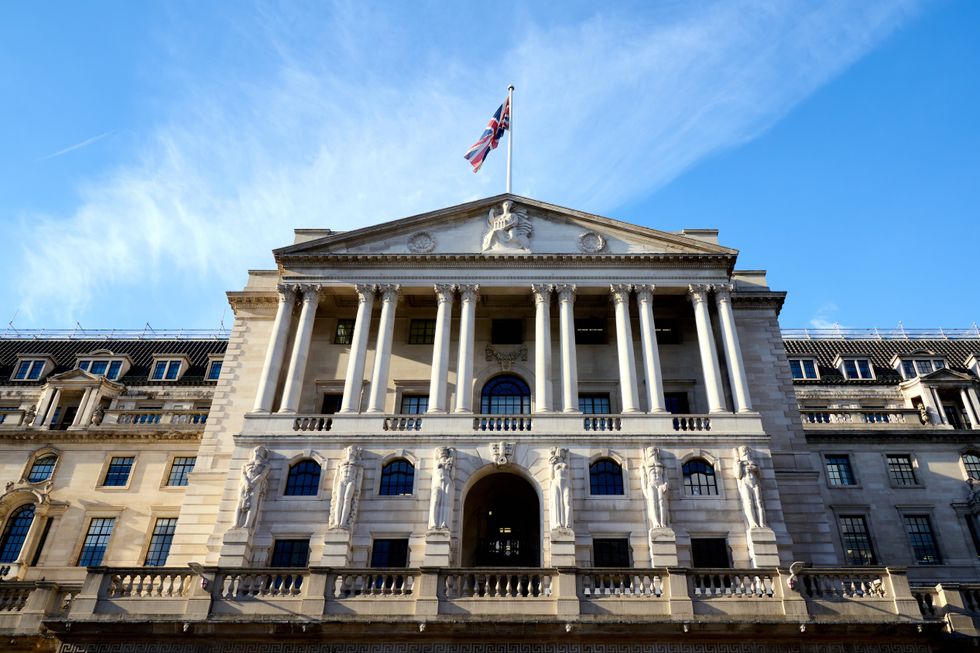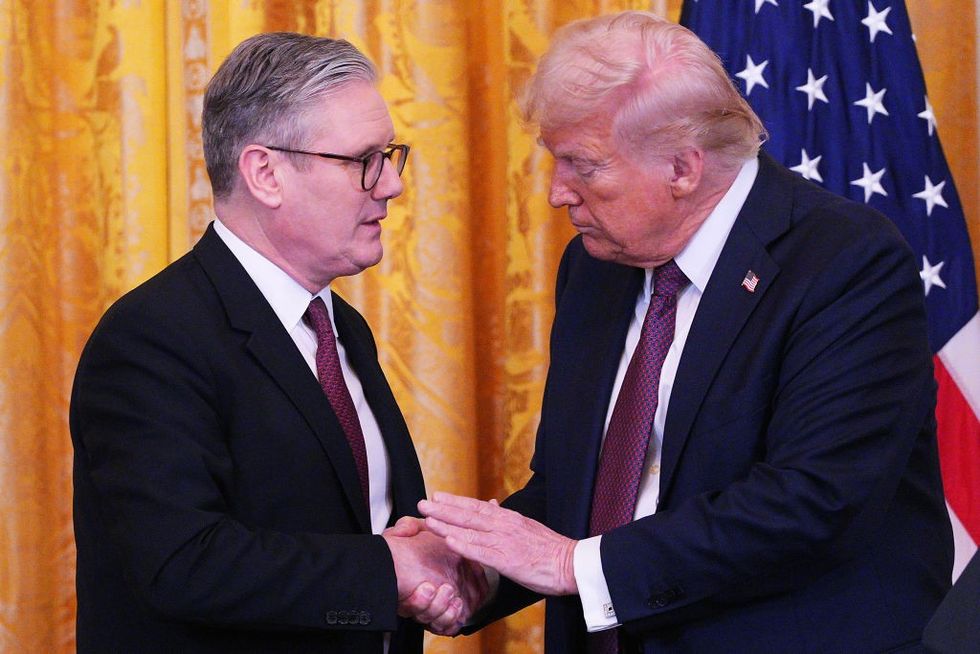Economy warning: Bank of England says UK faces 'severe weakness' in demand despite US trade deal

GBNEWS

Britons are warned things could get worse as the economy could see 'much more severe weakness of demand than we're expecting'
Don't Miss
Most Read
Latest
The Bank of England has warned the UK economy is nearing a critical point, with pressure from trade tensions, inflation, and global uncertainty.
Governor Andrew Bailey said there’s a growing risk of a sharp drop in demand, raising fresh fears of recession.
Bank of England Governor Andrew Bailey has warned that the UK faces growing economic uncertainty, despite becoming the first country to secure a trade deal with the US under President Trump’s new tariff regime.
“The tariff and trade situation has injected more uncertainty into the situation... There’s more uncertainty now than there was in the past,” Bailey told CNBC.
While he welcomed the agreement, Bailey cautioned that it would not shield the UK from wider global risks. “A UK-US trade agreement is very welcome… but the UK is a very open economy,” he said.
The Bank of England cut interest rates from 4.5 to 4.25 per cent this week, citing weakening demand.
Bailey also warned of a “much more severe weakness of demand” than expected, with businesses delaying investment and recession fears building.
 Donald Trump has made tariffs the focus of his economic agenda | REUTERS
Donald Trump has made tariffs the focus of his economic agenda | REUTERSHe said: “There’s risk on one side that we could get a much more severe weakness of demand than we're expecting, that could then pass through, obviously, to having a weaker outlook for inflation.”
At the same time, he pointed to risks on the opposite side - including persistent inflation driven by stronger-than-anticipated wage growth, ongoing supply issues, and the chance of a rebound in energy prices.
“Companies are delaying investment decisions… I am hearing more of that,” he said, highlighting growing hesitation among businesses amid mounting uncertainty.
The Bank of England’s report also flagged global trade tensions and tariff disputes as major sources of economic instability.
Bailey singled out the rise in protectionism, particularly involving the United States and China, as a key threat to growth. “The trade and tariff situation has injected more uncertainty… and there’s more now than certainly there was in the past,” he said.

The Bank of England lowered the base rate
| PAEconomist Professor Patrick Minford echoed these concerns in an interview with GB News.
He said: “These tariffs are causing a recession worldwide and it's driving down the price of oil, gas and energy. It’s likely to spill over to us.”
Minford described the situation as “an American own goal” and “self-harm by the US,” adding that he would have preferred a larger rate cut than the 0.25 percentage point reduction.
Minford criticised the pace of monetary easing and argued that the Bank should act more decisively to counter the threat of recession. “I would have welcomed more [of a cut to base rates] actually,” he said.

The UK the first country to agree deal with US since Trump imposed sweeping tariffs in April
|GETTY
Despite the rate cut, the Bank indicated that further action would depend on incoming economic data.
The monetary policy committee said it would continue to monitor signs of inflation persistence and the strength of demand before making further changes.
The Bank’s cautious tone follows a period of economic volatility, with falling business investment, slower wage growth, and international trade disruptions all weighing on the UK’s outlook.
Officials signalled that while inflation has eased from its peak, they remain alert to both upward and downward risks in the months ahead.










